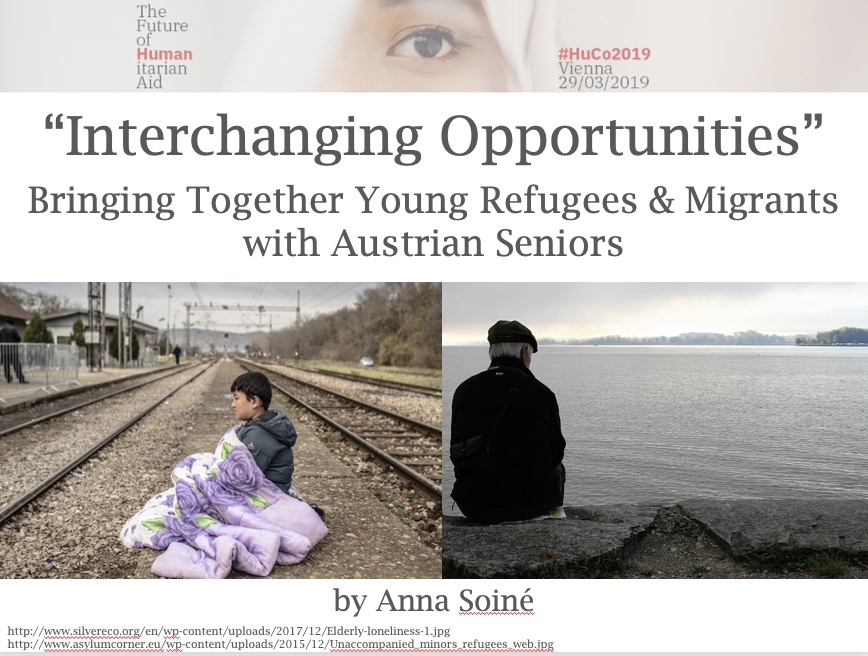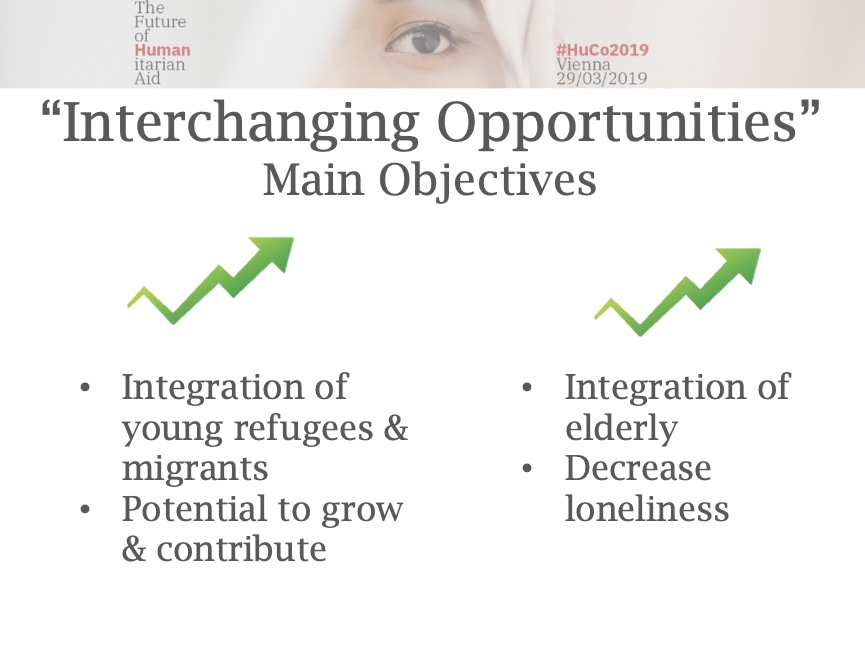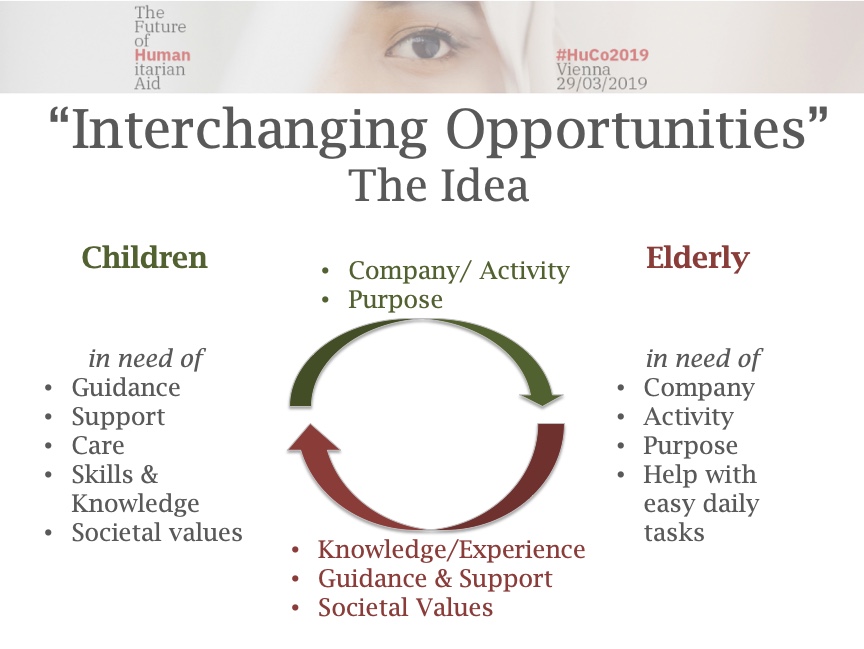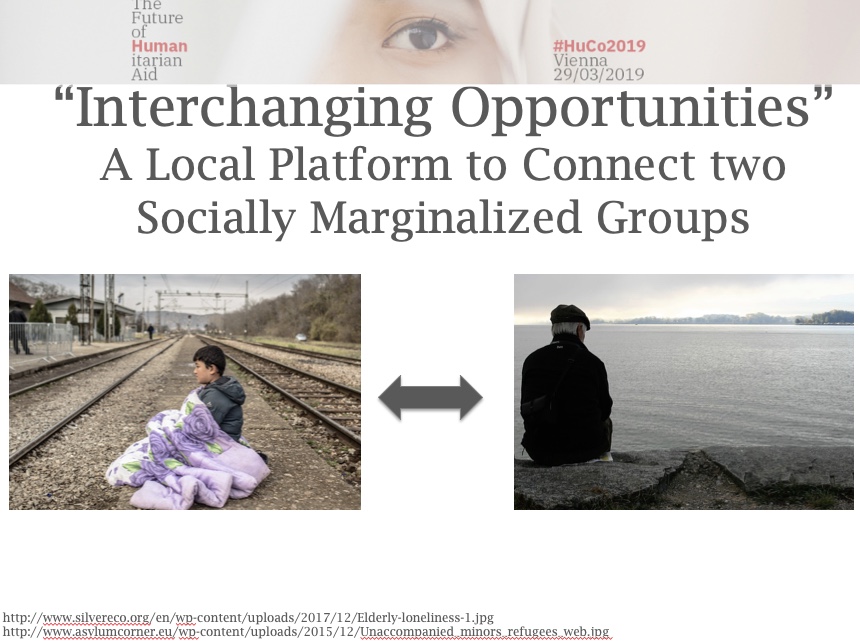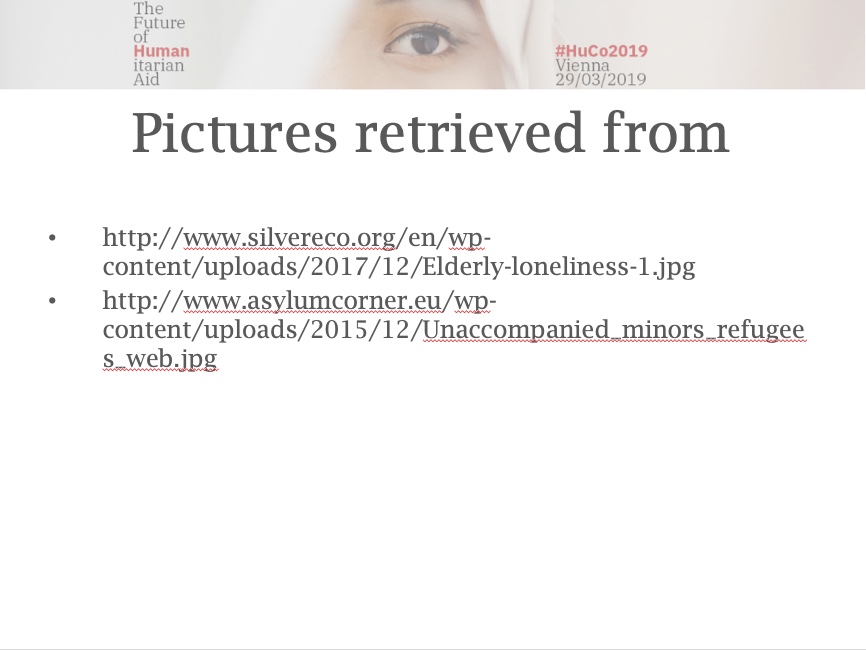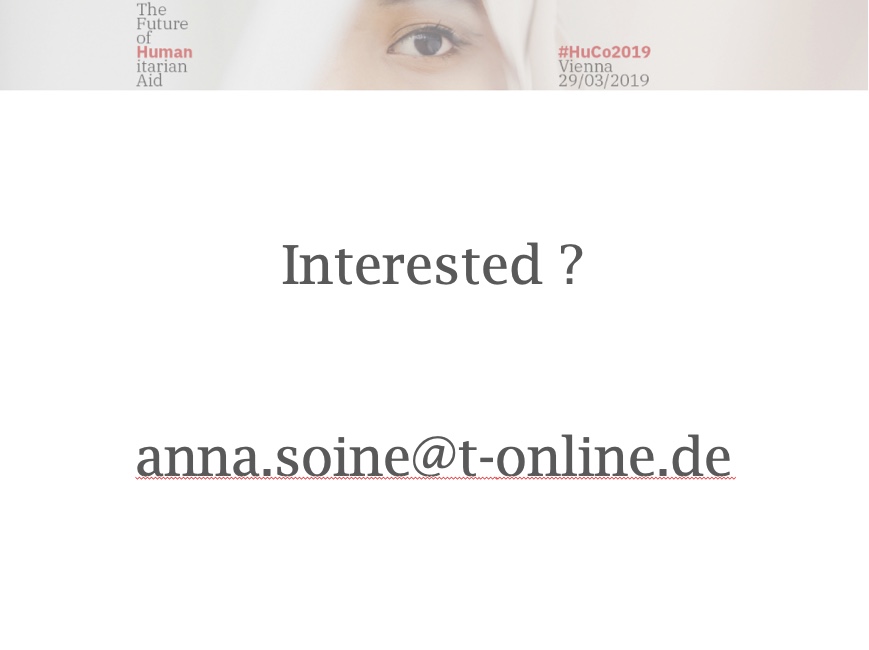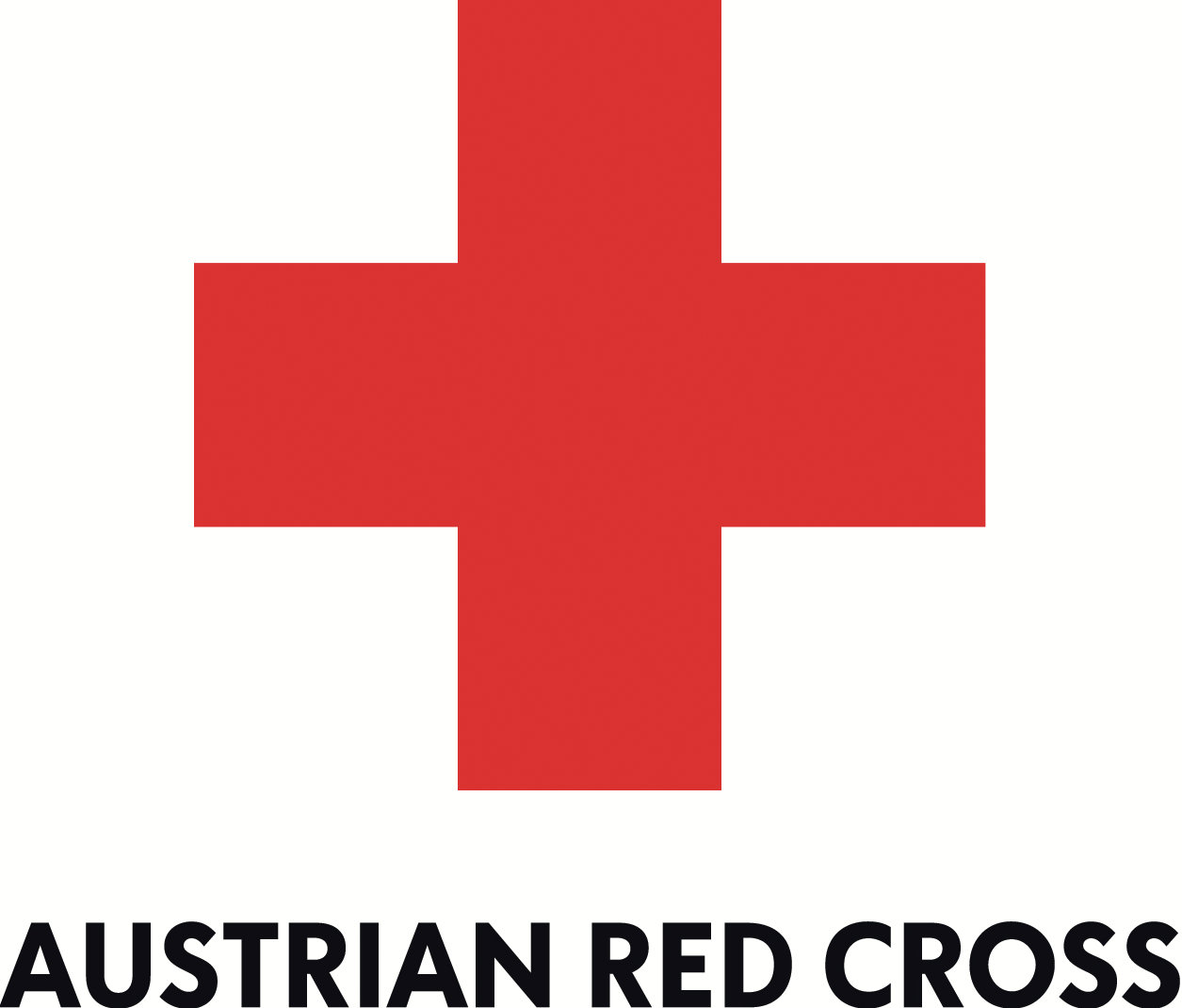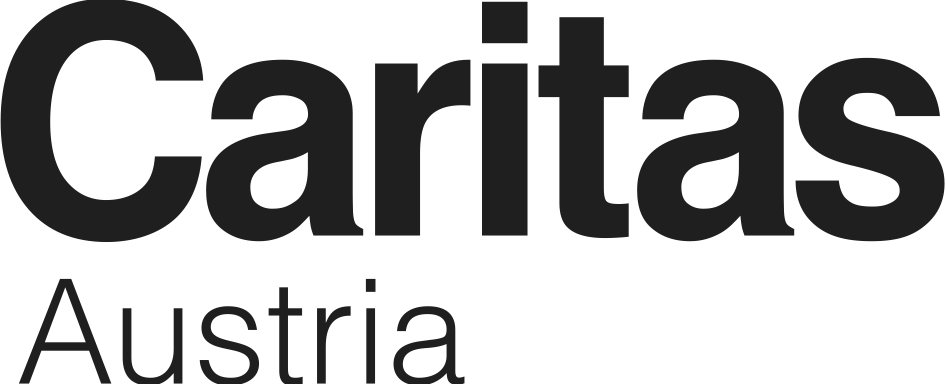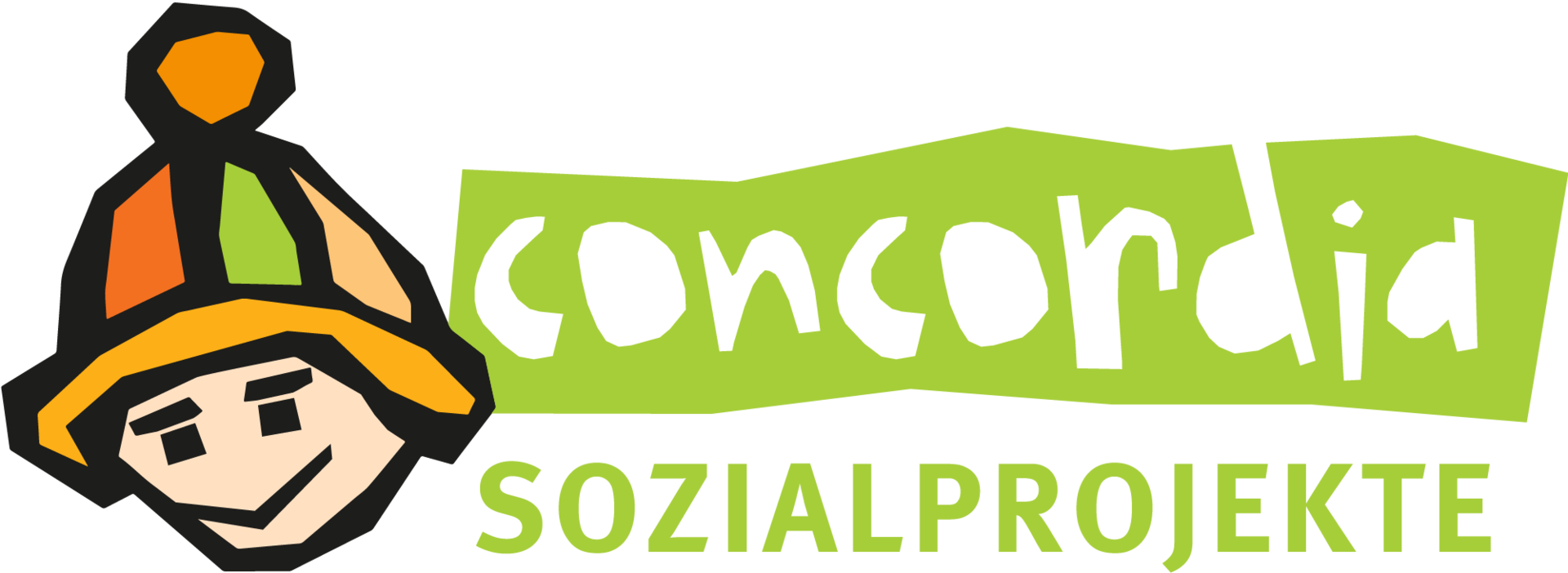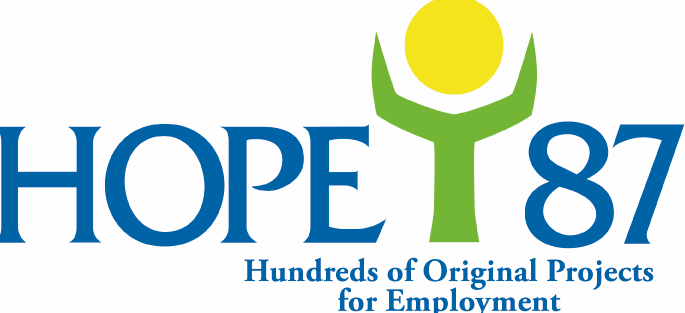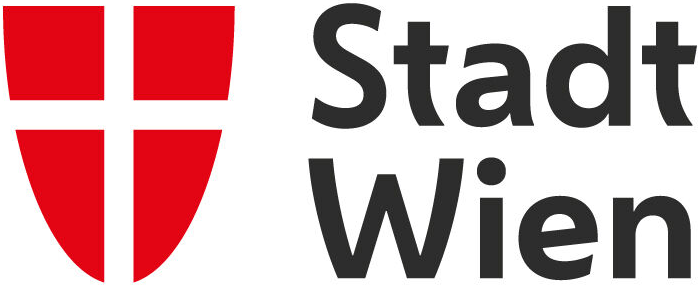Developed by Anna Soiné
Abstract
Key point:
The project aims to bring together two local socially marginalized groups to
support each other though interchanging their strengths and weaknesses, thus
exchange opportunities and manage their (re-) integration process into society,
as well as difficulties by themselves, without further external help and by little
financing. The concept is originally developed to join children from socially
deprived backgrounds and elderly people who suffer from loneliness but
applicable to all marginalized groups whose needs and competencies can be
matched/ counter with those of another.
What for?
The three main objectives of the program are
a) to reduce elderly loneliness and improve the lives of lonely elderly
b) to enhance the living quality and chances in adulthood for children
from any type of deprived background (refugees, migrants, living in a
state of neglect, do not have parents anymore, etc.).
c) bring society and people living in the neighborhood closer together,
enhance their living quality and reduce inequality among the
population
Why?
On the individual level:
With respect to the facts such as …
• Half of the worlds refugees are minors
• Children living with addicted parents are likely to become addicts
themselves
• Children living with parent with mental illness have up to 50% chance
of developing a mental illness themselves (Leijdesdorff, S., Van
Doesum, K., Popma, A., Klaassen, R., Van Amelsvoort, T., 2017)
• Children from socially deprived backgrounds and difficult family
environments have less chances later on in life compared to their
privileged counterparts
Which have the consequence that those children, whose parents have more
severe struggles to fight everyday than to provide optimal care and nurturing for
their children so they can unfold their full potential, do clearly have
disadvantages and a higher risk to suffer from mental or physical illness in their
later lives. Loneliness is becoming, especially in individualistic cultures more and
more a widespread “disease” and …
• is a common source of suffering, distress and impaired quality of life
• and in elderly people (above 60 years) can even be a predictor of
functional decline and death (Perissinotto, C.M., Cenzer, I.S., Covinsky,
K.E., 2015)
On the societal level:
• Foster tolerance and respect among the members of the society
• Encourage more individuals/ groups to actively participate in the
process of shaping the society
• Reduce the number of individuals and groups being counted as or
identifying themselves as socially marginalized and less accepted in
society (thus decrease the likelihood of negative consequences such as
hate crimes to occur)
What?
The project attempts to join two target groups in care homes or in individual
cases for living situations with the aim of promoting a supporting and caring
long-term relationship that helps both parties to flourish and live to their full
potential.
The Interchange of Opportunities & Skills
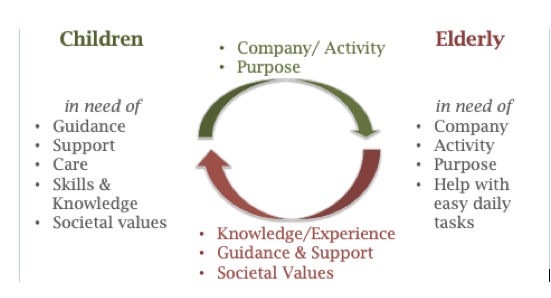
How?
“Interchanging opportunities” is a general concept that can be adjusted and
implemented in cooperation with local institutions and any kind of care or
educational facilities. The implementation of the project is planned to be on a
large scale with this underlying general concept that can then be tailored to the
specific needs of institutions, communities and individuals. The project aims to
reach its participants via:
1. Local humanitarian aid services/ care facilities/ institutions/
educational services etc. and cooperation partners
2. Social media campaign reaching for private people and communities
3. Private people in the area
Presentation
